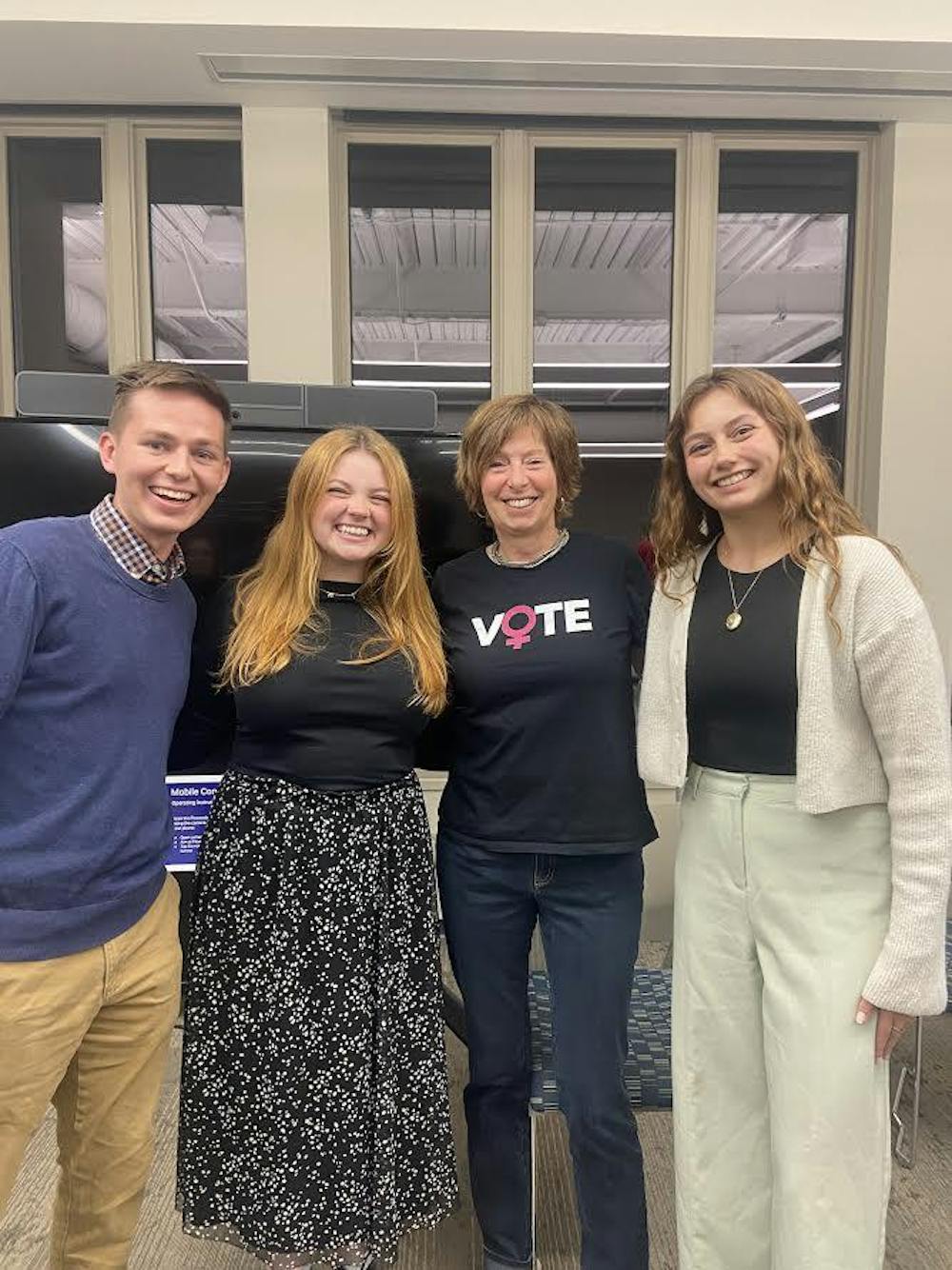Serving as Notre Dame's women basketball coach from 1987 until 2020 and garnering 930 career wins and two NCAA championships, Muffet McGraw has long been a celebrated figure in women’s sports. Recently, however, she has turned her attention to advocating for social justice, women’s rights and democratic engagement, she explained during an event hosted by College Democrats Monday night on public figures in the political spotlight.
McGraw acknowledged she was not always politically active.
“I wasn’t really involved in politics at all until Trump got elected,” she said. “For a lot of people like me, you voted every four years for president, and that was pretty much it, but I realized it’s what happens at the local levels that’s so important.”
During her last years of coaching, McGraw sought to emphasize her focus on political issues to her team.
“I started watching less ESPN and more CNN,” she said. “I wanted to help my team understand what was happening in the world beyond sports.”
This focus culminated in 2018 when the Notre Dame women's basketball team voted to decline a White House invitation after their championship win — although an invitation never came.
“In 2001, it was an incredible experience to visit the White House, but in 2018, the team just didn’t feel right about it. That was big,” McGraw said.
McGraw argued public figures, athletes and artists have a moral responsibility to leverage their influence to create social change. She described the choices of prominent public figures such as Taylor Swift and Beyoncé to publicly support liberal political causes as “courageous.” Conversely, McGraw also expressed disappointment in those who avoid political statements for fear of losing fans or endorsements. She referenced Michael Jordan’s well-known quote, “Republicans buy my shoes too,” describing it as outdated in today’s climate.
McGraw also encouraged gender equity in politics and pointed to the success of women running in political races this election cycle.
“There’s such strong women running, even here in Indiana,” she said, in reference to the increasing number of women entering politics since 2016.
Having retired from coaching, McGraw now teaches a sports leadership class at the Mendoza College of Business. Reflecting on her current position, McGraw shared she was originally hesitant to apply for the role, feeling under-qualified, despite her capabilities.
“My husband practically had to push me to apply,” she said. “But men don’t hesitate — they just go for it with half the qualifications.”
She emphasized the importance of confidence and self-belief, particularly for women who often feel they must meet all criteria before applying for a role.
McGraw also argued that gender bias still exists in the hiring of college sports coaches, noting that only 40% of women’s teams are led by female coaches.
“This is why we need to empower each other,” she said.
She praised the effectiveness of networking among men and urged women to adopt similar strategies.
For students seeking ways to become more politically active, McGraw encouraged getting involved in any way, even by simply wearing a shirt that conveys messages they believe in.
“You can’t sit this one out,” she said. “If someone isn’t doing what you’re doing on the level that you’re doing it, their opinion shouldn’t matter.”
McGraw recalled a moment from 2014 when her team wore shirts with the words “I Can’t Breathe” written on them to show solidarity with the Black Lives Matter movement, prompting backlash from some fans and supporters of law enforcement. When asked what motivated her team to wear the shirts, McGraw explained it stemmed from a desire to foster an environment where players felt empowered and educated on social justice issues.
“Sports are a microcosm,” she said, “We role model how different people can work together. We’re all about diversity. We had so many different people — LGBTQ, black, white, and so we're showing people how to get along and be a team. We are trying to kind of show the rest of society how to do that.”










